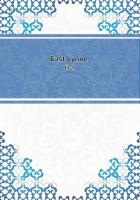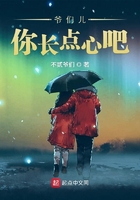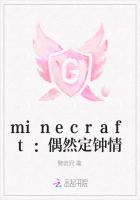DURING the first day of Ramona's and Alessandro's sad journey they scarcely spoke. Alessandro walked at the horses' heads, his face sunk on his breast, his eyes fixed on the ground. Ramona watched him in anxious fear. Even the baby's voice and cooing laugh won from him no response. After they were camped for the night, she said, "Dear Alessandro, will you not tell me where we are going?"
In spite of her gentleness, there was a shade of wounded feeling in her tone. Alessandro flung himself on his knees before her, and cried: "My Majella! my Majella! it seems to me I am going mad! I cannot tell what to do. I do not know what I think; all my thoughts seem whirling round as leaves do in brooks in the time of the spring rains. Do you think I can be going mad? It was enough to make me!"
Ramona, her own heart wrung with fear, soothed him as best she could. "Dear Alessandro," she said, "let us go to Los Angeles, and not live with the Indians any more. You could get work there. You could play at dances sometimes; there must be plenty of work. I could get more sewing to do, too. It would be better, I think."
He looked horror-stricken at the thought. "Go live among the white people!" he cried. "What does Majella think would become of one Indian, or two, alone among whites? If they will come to our villages and drive us out a hundred at a time, what would they do to one man alone? Oh, Majella is foolish!"
"But there are many of your people at work for whites at San Bernardino and other places," she persisted. "Why could not we do as they do?"
"Yes," he said bitterly, "at work for whites; so they are, Majella has not seen. No man will pay an Indian but half wages; even long ago, when the Fathers were not all gone, and tried to help the Indians, my father has told me that it was the way only to pay an Indian one-half that a white man or a Mexican had. It was the Mexicans, too, did that, Majella. And now they pay the Indians in money sometimes, half wages; sometimes in bad flour, or things he does not want; sometimes in whiskey; and if he will not take it, and asks for his money, they laugh, and tell him to go, then. One man in San Bernardino last year, when an Indian would not take a bottle of sour wine for pay for a day's work, shot him in the cheek with his pistol, and told him to mind how he was insolent any more! Oh, Majella, do not ask me to go work in the towns! I should kill some man, Majella, if I saw things like that."
Ramona shuddered, and was silent. Alessandro continued: "If Majella would not be afraid, I know a place, high up on the mountain, where no white man has ever been, or ever will be. I found it when I was following a bear. The beast led me up. It was his home; and I said then, it was a fit hiding-place for a man. There is water, and a little green valley. We could live there; but it would be no more than to live,, it is very small, the valley. Majella would be afraid?"
"Yes, Alessandro, I would be afraid, all alone on a high mountain.
Oh, do not let us go there! Try something else first, Alessandro. Is there no other Indian village you know?"
"There is Saboba," he said, "at foot of the San Jacinto Mountain; I had thought of that. Some of my people went there from Temecula; but it is a poor little village, Majella. Majella would not like to live in it. Neither do I believe it will long be any safer than San Pasquale. There was a kind, good old man who owned all that valley,-- Senor Ravallo; he found the village of Saboba there when he came to the country. It is one of the very oldest of all; he was good to all Indians, and he said they should never be disturbed, never. He is dead; but his three sons have the estate yet, and I think they would keep their father's promise to the Indians. But you see, to-morrow, Majella, they may die, or go back to Mexico, as Senor Valdez did, and then the Americans will get it, as they did Temecula. And there are already white men living in the valley.
We will go that way, Majella. Majella shall see. If she says stay, we will stay."
It was in the early afternoon that they entered the broad valley of San Jacinto. They entered it from the west. As they came in, though the sky over their heads was overcast and gray, the eastern and northeastern part of the valley was flooded with a strange light, at once ruddy and golden. It was a glorious sight. The jagged top and spurs of San Jacinto Mountain shone like the turrets and posterns of a citadel built of rubies. The glow seemed preternatural.
"Behold San Jacinto!" cried Alessandro.
Ramona exclaimed in delight. "It is an omen!" she said. "We are going into the sunlight, out of the shadow;" and she glanced back at the west, which was of a slaty blackness.
"I like it not!" said Alessandro. "The shadow follows too fast!"
Indeed it did. Even as he spoke, a fierce wind blew from the north, and tearing off fleeces from the black cloud, sent them in scurrying masses across the sky. In a moment more, snow-flakes began to fall.
"Holy Virgin!" cried Alessandro. Too well he knew what it meant.
He urged the horses, running fast beside them. It was of no use.
Too much even for Baba and Benito to make any haste, with the heavily loaded wagon.
"There is an old sheep-corral and a hut not over a mile farther, if we could but reach it!" groaned Alessandro. "Majella, you and the child will freeze."
"She is warm on my breast," said Ramona; "but, Alessandro, what ice in this wind! It is like a knife at my back!"
Alessandro uttered another ejaculation of dismay. The snow was fast thickening; already the track was covered. The wind lessened.
"Thank God, that wind no longer cuts as it did," said Ramona, her teeth chattering, clasping the baby closer and closer.
"I would rather it blew than not," said Alessandro; "it will carry the snow before it. A little more of this, and we cannot see, any more than in the night."
Still thicker and faster fell the snow; the air was dense; it was, as Alessandro had said, worse than the darkness of night,-- this strange opaque whiteness, thick, choking, freezing one's breath.















